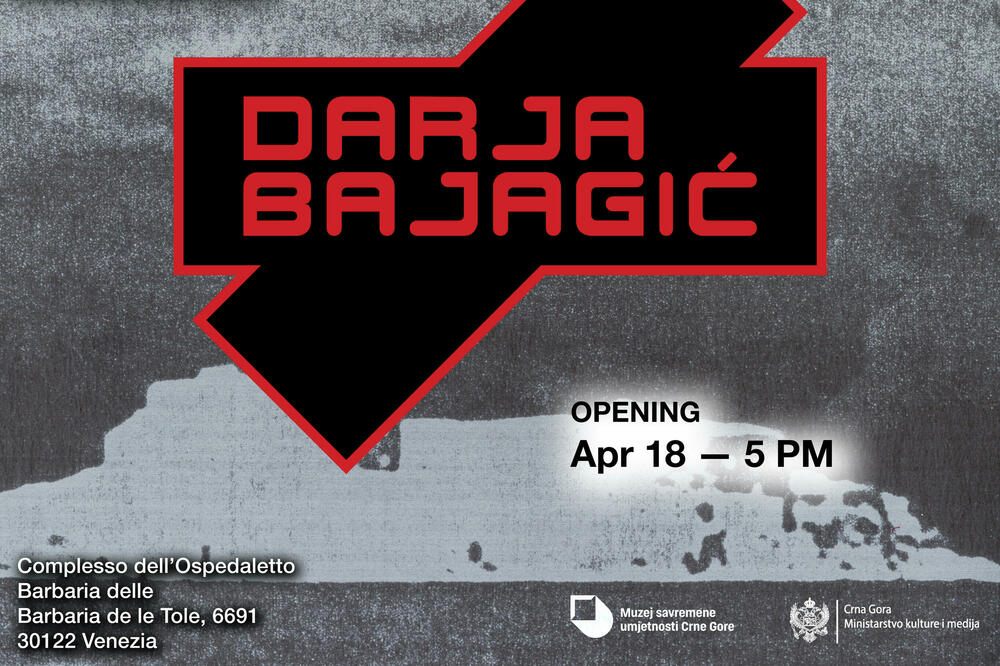The Montenegrin pavilion at the 60th Biennale of Contemporary Art in Venice will be opened on Thursday, April 17 at 17 p.m. This year, Montenegro is represented by the project "It Takes an Island to Feel This Good", signed by the artist Darja Bajagić and curator Ana Simona Zelenović.
Instead of the previous space in Palazzo Malipiero, the Pavilion will be in the Venetian district of Ospedaleto, with the pretension of greater visibility and better presentation.
At the ceremonial opening, Bajagić and Zelenović will address the attendees, as well as the commissioner of the pavilion, the director of the Museum of Contemporary Art (MSUCG), who is the organizer and executive producer, Dr. Vladislav Šćepanović, while the exhibition will be opened by the Minister of Culture and Media dr Tamara Vujović in front of the department that is the general sponsor of the participation.
"The exhibition presents Darja Bajagić's critical review of the culture of collective memory and our relationship to our shared historical heritage. The artist reflects on these themes through painting and sculpture, focusing on the complex and multidimensional history of the Montenegrin island of Mamula", according to the MSUCG.
Her research project combines archival materials with characteristic referential and symbolic interventions.
"The exhibition 'It takes an island to feel this good' raises critical and relevant philosophical questions about the position of the other, questioning the ways in which the determination of this position simultaneously determines power relations in society, as well as over discourse. Her creativity is reflected in the Italian philosopher's political-philosophical analysis of modernity George Agamben - that the supra-paradigm and nomos of modernity is the concentration camp, in which the sovereign has complete authority over homo sacer, to the extent that he can influence their natural life. Focusing on relevant contemporary and historical complexes, Bajagić bravely faces complex problems, asking questions such as - is the prerequisite for evil, on the one hand, the neglect of history or, on the other hand, its commodification", announce from MSUCG.
Bonus video:




